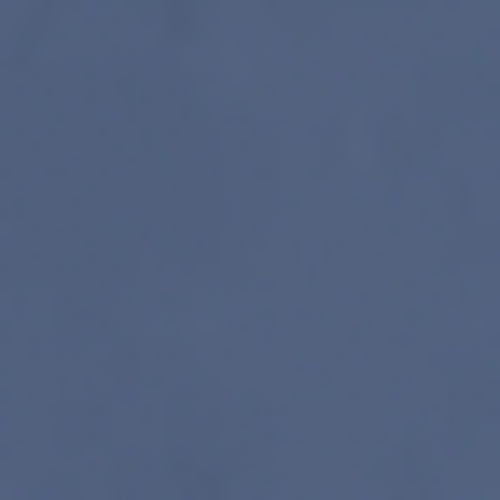The Final Days in Kuwait
The war had turned our home into a trap. Every day, the city grew more dangerous, and every night, the silence was broken by the distant roar of tanks or the sharp crack of gunfire. My parents tried to keep a sense of normalcy, but there was nothing normal about rationing food, whispering in our own house, or knowing that at any moment, a knock on the door could change everything.
Leaving wasn't a choice - it was survival.
The plan was simple: two cars, whatever we could carry, and the open road stretching toward Jordan. My father drove his 1990 red Saab convertible, once his pride and joy, its sleek body now dulled by a fine layer of dust from the war-torn streets. My mother followed in her silver Saab, its polished shine long forgotten. These brand-new cars - just a year old before the invasion - stood out starkly against the battered landscape, clearly marking us as easy targets. The models, still gleaming in the chaos, felt like fragile lifeboats navigating an ocean of destruction.
We left before dawn, the sky an inky canvas of stars that would soon fade to blue. The air was still clinging to the last coolness of the night. The sun had not yet risen, but the desert already carried the promise of another blistering day.
The city, in those early hours, looked almost peaceful - until you saw the wreckage. Burned-out cars lined the streets, their skeletons twisted and blackened, the sand beginning to reclaim them. Buildings stood with gaping wounds where missiles had torn through them, their insides spilling onto the roads like the exposed ribs of a carcass.
There were no traffic lights anymore. No police. No rules. Just a slow-moving exodus of desperate people trying to escape.
?
The Border That Wouldn't Open
Reaching the Kuwaiti border should have been a relief. It wasn't.
The road ahead was not an open gateway to freedom, but a long, stagnant line of vehicles, each carrying families with the same desperate hope. Hours stretched endlessly under the merciless sun, the metal of the cars scorching to the touch. There was no shade, no shelter - just an unmoving river of people, all waiting for the moment the border guards would wave them through.
The heat was relentless. Sweat soaked through our clothes, but there was no escaping it. We rationed water carefully, sipping just enough to keep our throats from going dry, but not enough to waste a single drop. The air was thick with gasoline fumes and the scent of bodies trapped too long under the sun. Babies cried, their wails growing weaker with every passing hour. Older children sat slumped in the backseats, too exhausted to complain.
Years later, I learned that a girl I knew had died there.
She was two years younger than me - someone I had seen in school, maybe even spoken to in the hallways, though I couldn't remember when. Her family had waited for too long under that scorching sky, and her body had given up. Heatstroke, they said. She died while her parents begged the border guards to let them through.
At the time, I didn't know.
At the time, all I knew was the silence that hung over the crowd, the quiet suffering of people trapped between a war behind them and an uncertain future ahead.
?
The Checkpoint
The further we drove, the more the desert swallowed us. The road stretched endlessly ahead, flanked by towering dunes that shimmered under the growing heat. The air, thick with dust and gasoline fumes, carried the scent of burning - rubber, metal, something unplaceable but unmistakable.
Then, in the distance, we saw them.
A checkpoint.
Iraqi highwaymen.
They were not soldiers. Soldiers had rules, even in war. These men had none. They stood in mismatched uniforms, their AK-47s slung across their chests, their boots kicking up clouds of dust as they stalked between the cars. Some grinned, their teeth flashing beneath the scarves wrapped around their faces. Others just watched, their eyes scanning each vehicle like predators searching for weakness.
My father's grip on the steering wheel tightened. My mother's fingers curled around the edge of the dashboard. No one spoke. Even my younger brothers, usually too restless to stay quiet, shrank into their seats.
When the men reached our cars, they didn't ask for papers. They didn't ask for money.
They pointed at our nanny.
I didn't understand at first. She was a thin, soft-spoken woman with kind eyes, always there in the background of our lives - cooking our meals, tucking us into bed, humming lullabies in a language I never bothered to learn.
She didn't look at them. She knew.
My parents refused.
My father, the man who never raised his voice, became a wall of fury, his words slicing through the thick desert air like a blade. My mother, despite the terror in her eyes, stood unshaken beside him.
The men hesitated. A moment stretched into eternity, the heat pressing down on us, the wind howling softly through the dunes.
I thought we would die there, on the side of the road, our bodies left to bake under the relentless sun.
But something shifted. Maybe they saw something in my father's eyes. Maybe they decided we weren't worth the trouble. Maybe we were just lucky.
Without another word, they stepped back. And then we were driving again, the tension still thick in the air, the fear clinging to our skin like sweat.
I never asked my parents about it. I didn't need to.
I knew, even then, that there were things too dark to name.
?
A Cold Welcome in Amman
We reached the Jordanian border on August 28, 1990, the desert giving way to hills and dust-coated buildings that should have felt like salvation. But instead of relief, we found rejection.
"We all have our own problems," they said. "We have nothing to spare."
Not a room. Not a meal. Not a single dinar.
My parents had lost everything - fifteen years of work, a home, stability, security - and yet their own blood turned them away as if they were strangers.
I had never seen my mother cry like that before. My father, always composed, sat in silence, his face unreadable.
I was fourteen. Old enough to feel the shame of needing help. Too young to do anything about it.
With no other choice, my parents used the last of their hidden cash to rent a small, empty apartment. They paid for a year of school for us, believing that education was the only thing no one could take away. But after rent and school fees, there was nothing left.
For months, we lived off the cans we had grabbed from our pantry in Kuwait. Cold beans. Tuna straight from the tin. Powdered milk mixed with water. There was no stove, no table, no chairs - just us and the walls.
For six months, the apartment stayed empty. No beds, no couches, just blankets on the floor and the sound of winter creeping in through the cracks.
My mother worked three jobs just to keep us afloat. My father - once a respected professional - spent two years searching for work that didn't exist.
And me? I became the easiest target. My grades, my behavior - every mistake became proof of our struggles. My mother's frustration, my father's silence, the anger and grief they had nowhere else to put - it all landed on me.
I didn't blame them. Not really.
But I learned something in those months of hunger, whispered arguments, and watching my parents' backs curve under the weight of disappointment.
Love doesn't always come with help.
And survival doesn't leave room for kindness.






